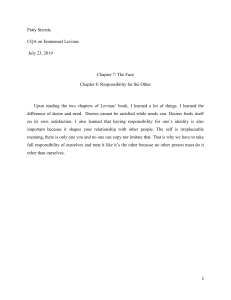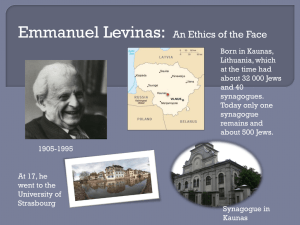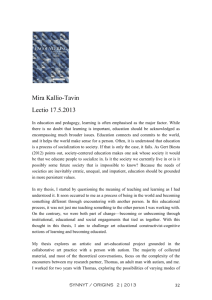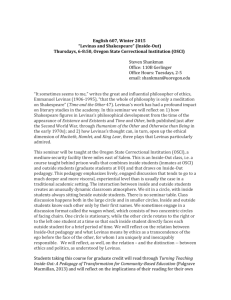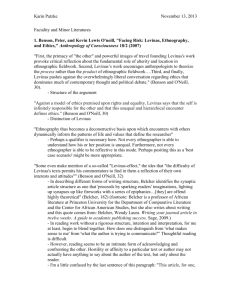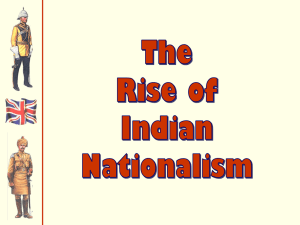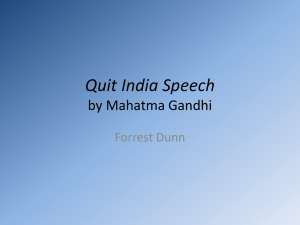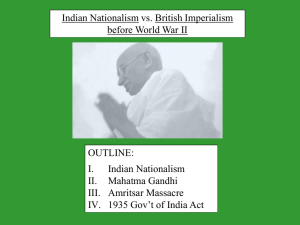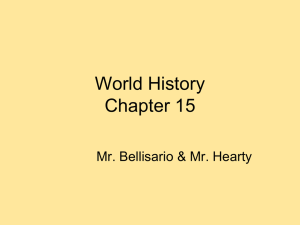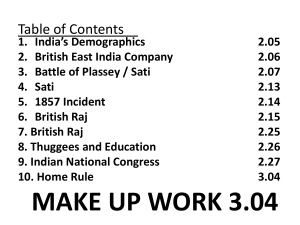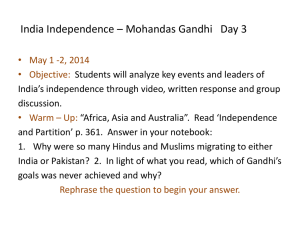Bill Ashcroft: “Constitutive Graphonomy”
advertisement
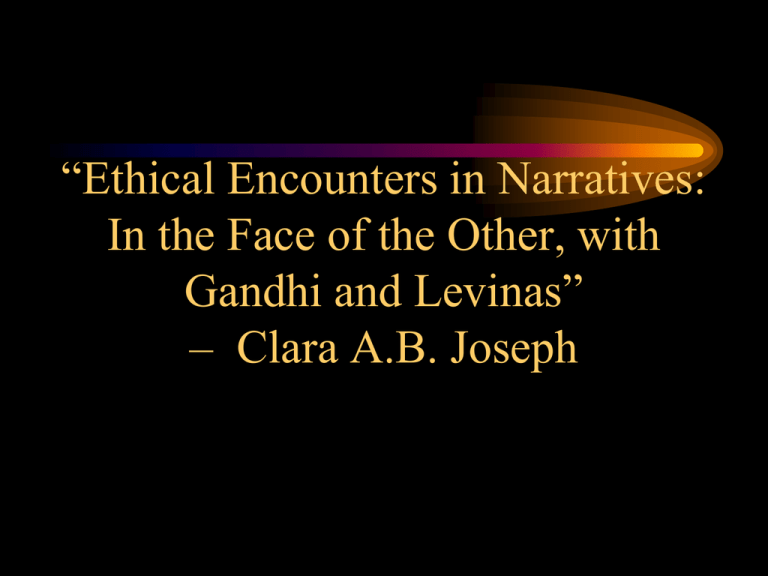
“Ethical Encounters in Narratives: In the Face of the Other, with Gandhi and Levinas” – Clara A.B. Joseph • Two literary works and two philosophies, to consider if narratives can help us negotiate, without too much danger, the relationship of the self with the other. The Road and the Acts of Thomas: what these say about Somalia perhaps and pre-colonial Christians of India; how the philosophy of Gandhi’s talisman and Levinas’ ethics of the face, can help us engage with these literary works and, through literary criticism, with the other. • I’ll first summarize and highlight passages of the literary works, beginning with The Road. Then I’ll briefly introduce aspects of the philosophy of Mahatma Gandhi and Emmanuel Levinas, which may help us in an ethical understanding of these texts in the context of political realities that we face today. Overall: the question is how must the self address the other? • The novel, The Road, won the prestigious Pulitzer Prize in 2006. Soon after, it was also made into a movie, under the same title. Because of the high ratings that the book received, I decided to read it. It was difficult to begin, but soon it was more difficult to put it down. The plot is simple: a man and his son are on the road, heading South, and the period is after most of the world they knew had literally turned to ashes. Food is short. So too water. At night, all that the father can do is hold his son who is “shivering against him” as he “counted each frail breath in the blackness” (14). [] But “he told the boy stories. Old stories of courage and justice as he remembered them until the boy was asleep …” (41). “He whispered to the sleeping boy. I have you” (54). • In his article, “With the World at Heart: Reading Cormac McCarthy's ‘The Road’ with Augustine and Heidegger,” Thomas A. Carlson quotes this final line, this whisper of the man, as the concluding evidence not of possessiveness or despair but rather of Charity and Being. Augustine’s caritas and Heidegger’s Dasein or Being persist, according to Carlson, in the perseverance of love and mutual presence, even when the father eventually dies. Later on I will return to this quotation from The Road to see if this is really the moment of ethics or rather of its lack in the novel, this moment when the father expresses his fundamental right and relief: “He whispered to the sleeping boy. I have you” (54). • I will give you a talisman. Whenever you are in doubt, or when the self becomes too much with you, apply the following test. Recall the face of the poorest and the weakest man whom you may have seen, and ask yourself, if the step you contemplate is going to be of any use to him. Will he gain anything by it? Will it restore him to a control over his own life and destiny? In other words, will it lead to swaraj [self-rule] for the hungry and spiritually starving millions? Then you will find your doubts and your self melt away. -- Gandhi • Gandhi’s definition of the other as the most oppressed and the most marginalized is important. The French-Jewish philosopher, Emmanuel Levinas defines the other as the “Face.” The other is the one who is neither the self nor like the self, but the totally other. The other is the Face whom I encounter. This is the Face of the other who is the most vulnerable. What is more, the face of the other begs me – not to kill. Levinas says that in the face of the other I receive both a request and a command: Thou shalt not kill. I am dominated by this beseeching and this order so that, in this relationship between the self and the other, the self becomes subservient to the other. Further, the self will be grateful to the other for this, for it is the result neither of the generosity or the free choice of the self. Human bodies. Sprawled in every attitude. Dried and shrunken in their rotten clothes” (The Road47) • [image] “Who are they hiding from? From each other” (The Road 185) • [image] “The essence of discourse is prayer” – Levinas • [image] The Other . . . between me and my God • [image] • [since most of the material is being drafted for publication, I am unable to post any more. My apologies!]
